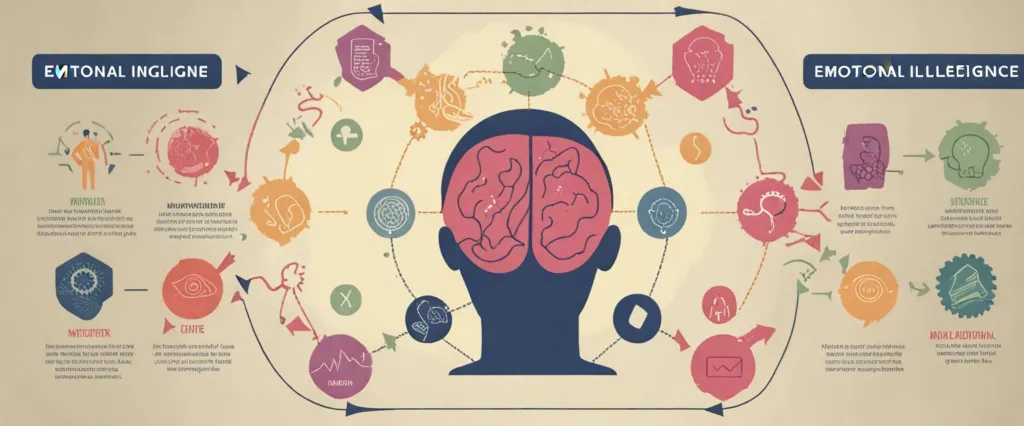
Transitions by William Bridges and Emotional Intelligence by Daniel Goleman are two influential books that explore different aspects of personal and professional development. Bridges focuses on navigating life changes and transitions, while Goleman delves into the realm of emotional intelligence and its impact on success and relationships. Both authors offer valuable insights and practical strategies for individuals seeking growth and self-improvement. In this comparative study, we will examine the key themes and strategies presented in each book, as well as explore how they complement and reinforce one another in the journey towards personal and professional fulfillment.
Brief Summary of Two Books
Transitions by William Bridges
Transitions: Making Sense of Life’s Changes by William Bridges is a book that explores the process of navigating and understanding the various transitions and changes we experience throughout our lives. Bridges argues that transitions are a natural part of life and are necessary for personal growth and development. He breaks down the process of transition into three stages: endings, the neutral zone, and new beginnings.
In the first stage, endings, Bridges explains how we must let go of old ways of thinking or behaving in order to make room for new opportunities and experiences. The neutral zone is a period of confusion and uncertainty, where we are in between the old and the new, and must grapple with the discomfort of not knowing what comes next. Finally, new beginnings involve embracing change and moving forward with a sense of purpose and direction.
Throughout the book, Bridges provides practical advice and exercises to help readers navigate their own transitions with grace and resilience. He emphasizes the importance of self-reflection, patience, and adaptability in the face of change. Overall, Transitions offers a valuable perspective on how to make sense of life’s transitions and come out stronger on the other side.
Emotional Intelligence by Daniel Goleman
“Emotional Intelligence” by Daniel Goleman explores the concept of emotional intelligence (EQ) and how it plays a crucial role in our personal and professional lives. The book argues that emotional intelligence is a better predictor of success than IQ, and that individuals with high EQ are better able to navigate social relationships, manage their emotions, and handle stress. Goleman provides strategies for developing and improving emotional intelligence, as well as real-life examples to illustrate the importance of EQ in various situations. Overall, the book highlights the importance of emotional intelligence in achieving personal and professional success.
Comparison between Two Books

Similarities in Psychology
Both books discuss the importance of understanding and managing emotions in order to navigate transitions successfully. Bridges emphasizes the psychological aspect of transitions, exploring the internal process of change and how individuals can adapt their mindsets to embrace new beginnings. Goleman, on the other hand, delves into emotional intelligence, which involves recognizing and regulating one’s own emotions as well as understanding and influencing the emotions of others. Both authors highlight the significance of self-awareness and self-management in dealing with transitions, underscoring the role of psychology in personal development and growth.
Divergences in Psychology
Transitions by William Bridges focuses on the psychological process of navigating significant life changes, such as job loss, retirement, or relocation. Bridges presents a model for managing these transitions that involves letting go of the past, experiencing a period of chaos and uncertainty, and ultimately embracing a new beginning. The book emphasizes the importance of understanding and accepting the emotions that arise during times of change, and offers practical tools for effectively navigating transition periods.
On the other hand, Emotional Intelligence by Daniel Goleman explores the concept of emotional intelligence and its impact on personal and professional success. Goleman argues that emotional intelligence, which encompasses self-awareness, self-regulation, empathy, and social skills, is more important than traditional measures of intelligence in determining one’s level of achievement and satisfaction in life. The book provides scientific research and case studies to support the idea that emotional intelligence can be cultivated and improved over time.
The key divergence in terms of psychology between these two books is their focus. While Transitions delves into the psychological process of navigating change and transition, Emotional Intelligence explores the role of emotions in overall success and fulfillment. While both books touch upon the importance of understanding and managing emotions, Transitions focuses more on the specific challenges and emotions that arise during times of transition, while Emotional Intelligence takes a broader approach to emotional intelligence and its impact on various aspects of life.

Conclusion
Both books have their own unique insights and value, so it ultimately depends on what you are looking to learn or improve upon.
“Transitions” by William Bridges focuses on understanding and navigating the personal and professional changes that individuals go through, offering guidance on how to successfully navigate these transitions. This book can be particularly valuable for those going through major life changes or looking to better understand and embrace transitions.
“Emotional Intelligence” by Daniel Goleman explores the importance of emotional intelligence in relationships, success, and overall well-being. This book provides valuable insights and strategies for developing emotional intelligence skills, enhancing self-awareness, managing emotions, and improving social interactions.
Both books offer valuable insights and skills that can benefit individuals in different aspects of their lives. If you are looking to better understand and navigate personal and professional transitions, “Transitions” may be more relevant. If you are more interested in developing emotional intelligence skills, improving relationships, and enhancing overall well-being, “Emotional Intelligence” may be a better fit. Ultimately, both books have their own merit and can be worthy of reading depending on your personal goals and interests.


